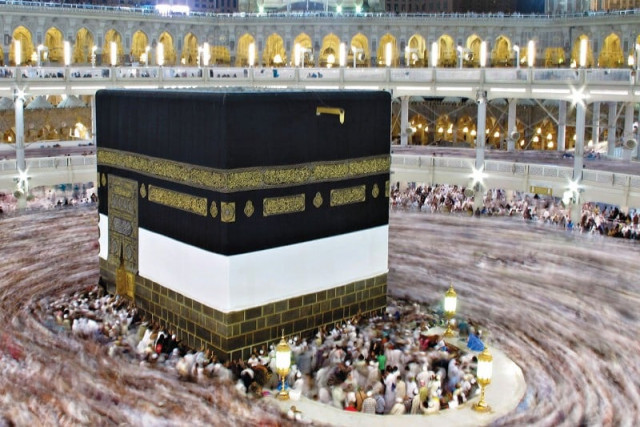Saudi Arabia in MERS warning as pilgrims stream in to Makkah for Hajj
Authorities worry pilgrims will pick up the coronavirus, when they travel to the Kingdom and take it back with them

Authorities are worrying pilgrims will pick up the coronavirus, which causes the disease when they travel to Mecca. PHOTO: REUTERS
MERS emerged in Saudi Arabia in 2012, and new cases continue to appear. Of the 1,500 cases reported globally so far, three-quarters were from Saudi Arabia, with more than 500 deaths, including six in Riyadh as recently as September 5 and 6.
Authorities are worried that pilgrims will pick up the coronavirus, which causes the disease, when they travel to Makkah, and unknowingly take it back home with them.
“The current outbreak is occurring close to the start of Hajj, and many pilgrims will return to countries with weak surveillance and health systems,” warned the World Health Organisation last week.
“The recent outbreak in Korea demonstrated that when the MERS virus appears in a new setting, there’s great potential for widespread transmission and severe disruption to the health system and society.”
Read: WHO issues alert over MERS import
Earlier this year, MERS infected 185 people, 36 of whom died as a result in South Korea.
Avoid camels
Saudi Arabia seems well-prepared for spotting and treating cases after the Hajj begins on September 21.
“They have agents on the ground and clinics devoted specifically to MERS,” says WHO spokesperson Christian Lindmeier. “The authorities are on high alert for the Hajj, and there were zero cases last year.”
He says pilgrims should avoid close contact with people who have flu-like symptoms, report any symptoms immediately, sneeze or cough into their sleeves, and avoid contact with camels, the main reservoir for the virus identified so far.
The disease has a development period of up to two weeks before symptoms become apparent, making it important for home countries to be on alert when the pilgrims return home to minimise the spread of the virus.
Read: Advisory on MERS still not finalised
The WHO has also advised countries to warn pilgrims with diabetes, chronic lung disease, or compromised immune systems that they are more vulnerable to MERS, and should consult their doctor before travelling.
The virus itself does not seem to spread particularly easily from person to person in the community. So far, many cases have arisen in hospitals, where infected individuals have had close contact with staff and other patients.
“If everyone is vigilant, people can look forward to a successful Hajj,” says Lindmeier.
The article originally appeared on New Scientist



















COMMENTS
Comments are moderated and generally will be posted if they are on-topic and not abusive.
For more information, please see our Comments FAQ